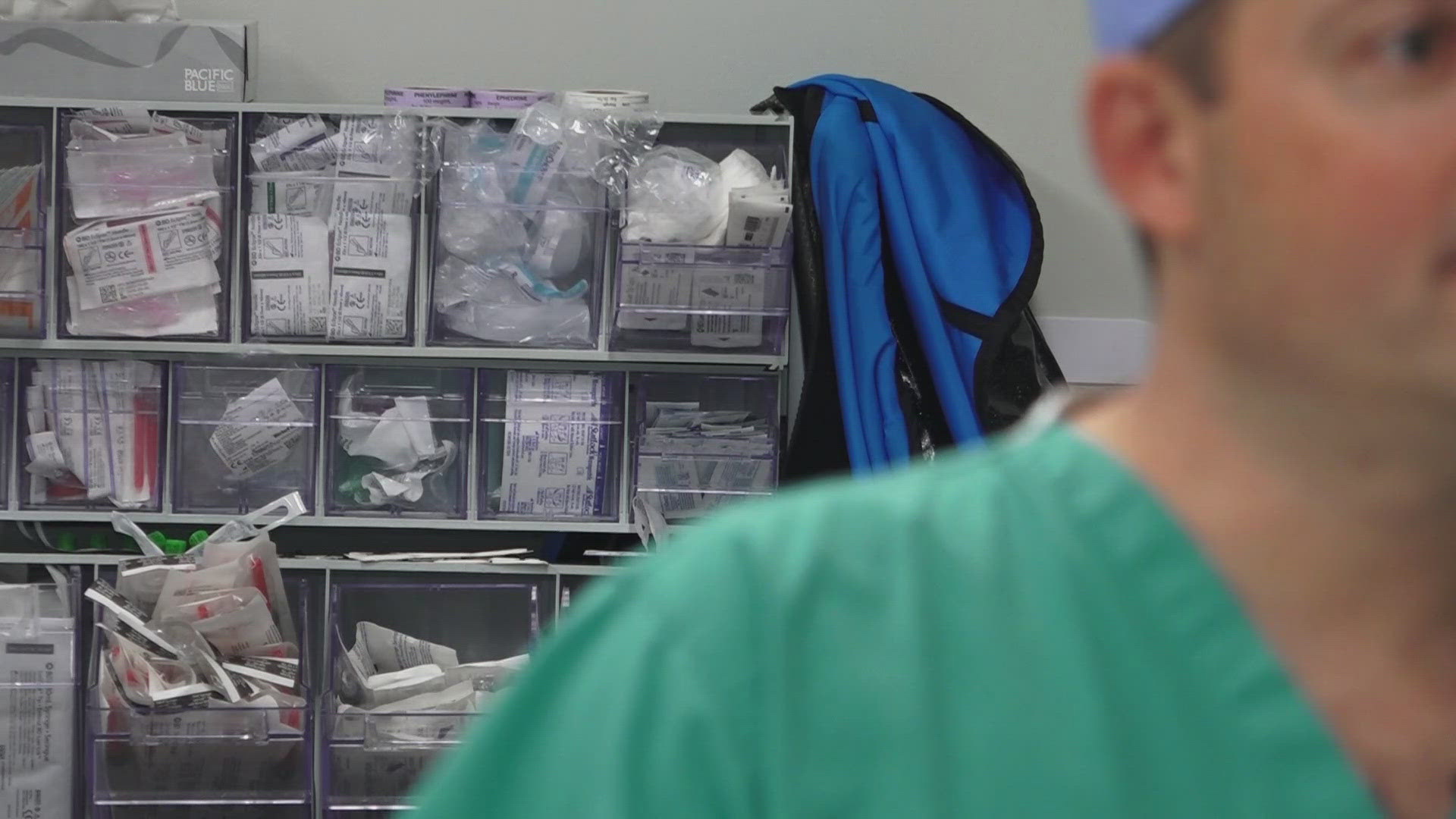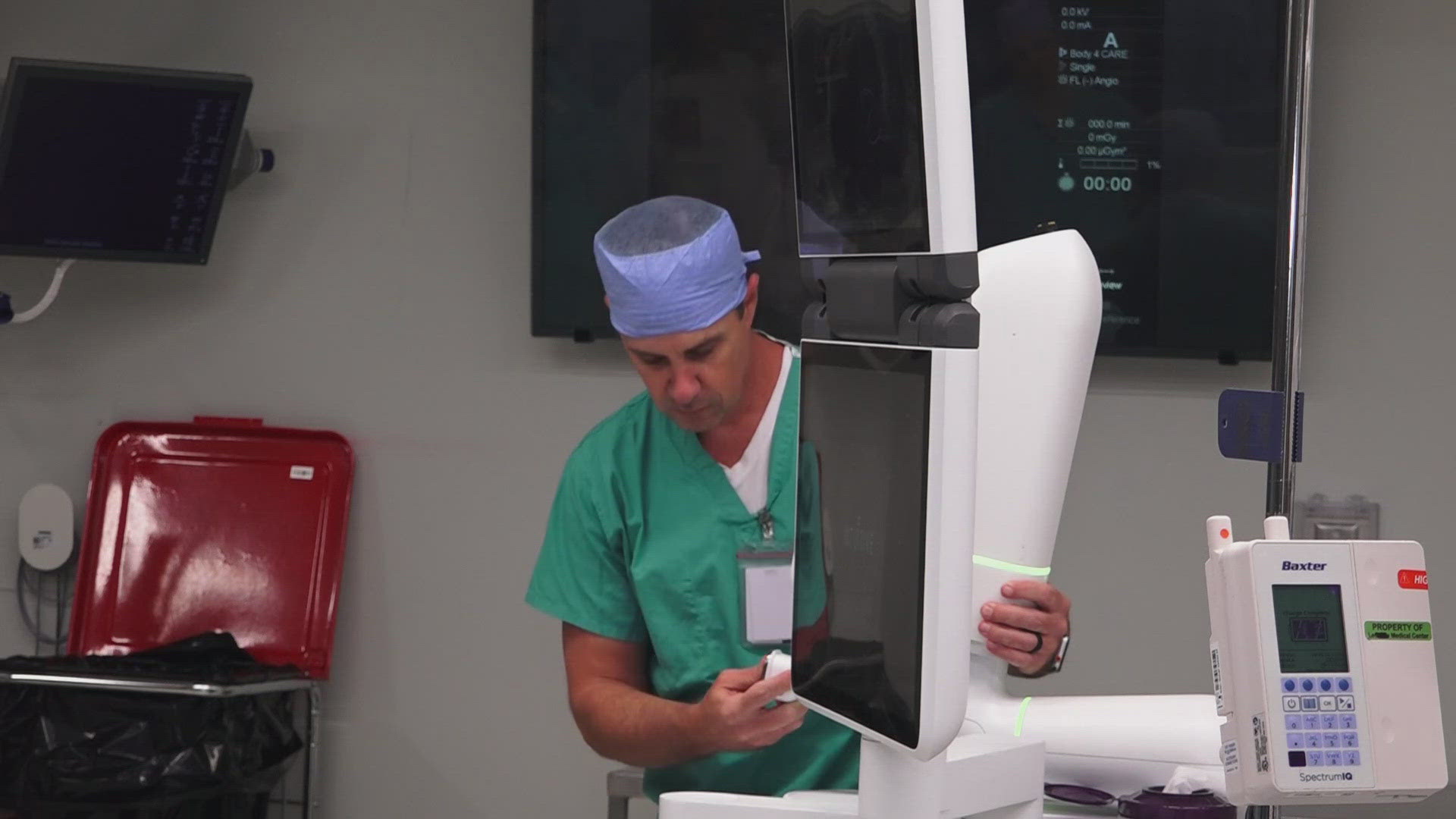KNOXVILLE, Tenn. — Officials at Fort Sanders Regional Medical Center (FSRMC) now have access to new technology that will allow them to detect and treat lung cancer quickly.
David Graham, a cardiothoracic surgeon with Covenant Health, said their new robotic platform includes robotic bronchoscopy, which is a camera that goes into the lungs.
"It is almost like a GPS of the lungs where it navigates right to that nodule so we can biopsy it quickly and easily with less complications," Graham explained. "The robotic bronchoscopy does add a significant improvement to the patient. In regards of diagnosis, oftentimes, those are found 90 percent of the time, which on other means it is far less."
Graham added that, if patients do need surgery, they now have access to robotic-assisted surgery, which allows them to perform surgeries with minimally invasive techniques.
"It does reduce the length of stay for the patient," he mentioned. "It reduces complications and allows that cancer to be treated in just a more efficient."
According to the Lung Cancer Research Foundation, one in 16 people will be diagnosed with lung cancer in their lifetime. Graham said East Tennessee has a higher-than-average rate of lung cancer. He added this is mainly because of extensive smoking history.
For that reason, he shared with 10News some of the warning symptoms when it comes to lung cancer:
- Increased shortness of breath
- Weight loss
- Extra coughing
- Coughing blood in the sputum
However, Graham said a lot of times symptoms do not show up until later on. "And that is what makes lung cancer very difficult to diagnose," he pointed out. "Because, oftentimes, it is found incidentally when the doctor obtains imaging for other reasons."
That is, in part, why Graham said health experts are prioritizing early screenings, particularly those with very low-dose radiation. He mentioned they typically target people between the ages of 50 and 80 years old and those with extensive smoking history.
When it comes to lung cancer, Graham told 10News that prevention is key. He said the best action people can take is to stop smoking. He added you can get help through your primary care physician or by calling the national route number 1-800-QUIT-NOW.
For more information on FSRMC's long nodule program and technologies, click here.


